Finding beauty in the ugly
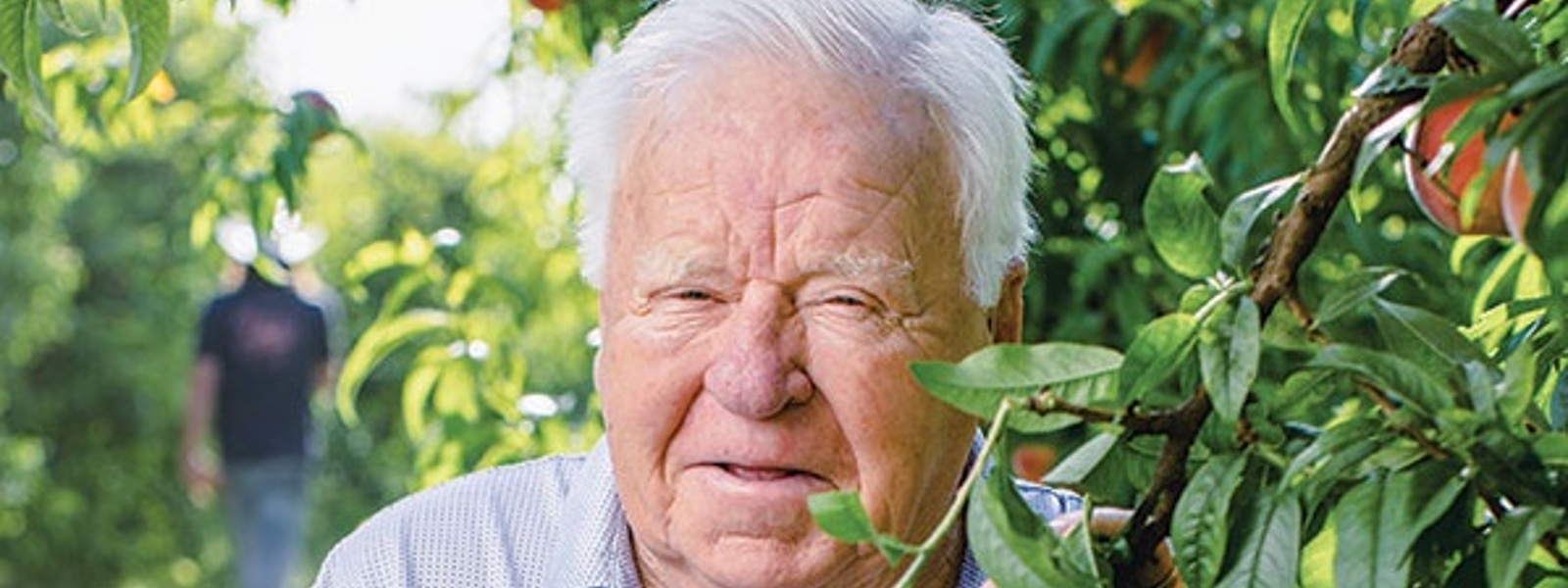
September/October 2022 California Bountiful magazine
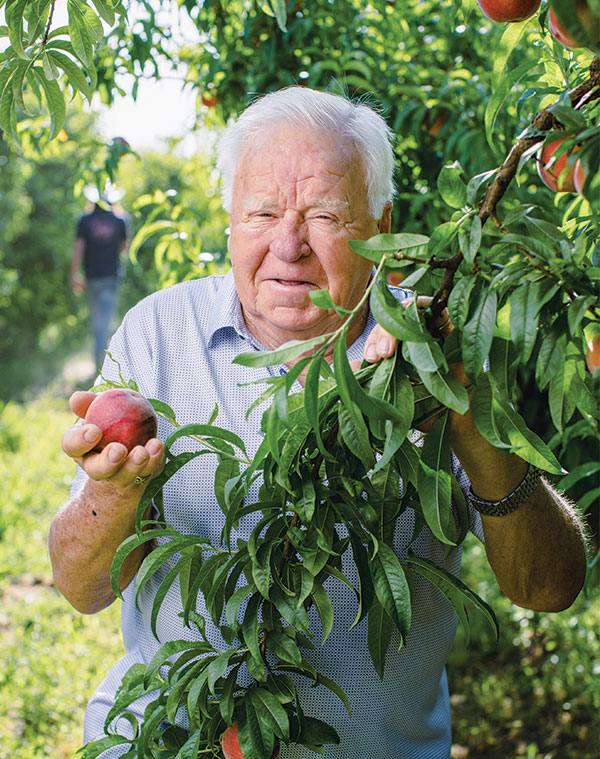
Aiming to fight food waste, farmer
creates treat out of discarded fruit
Story by Linda DuBois
Photos by Tomas Ovalle
Every time Walter Jones pops his favorite dried-fruit snack into his mouth, he’s amazed by the burst of flavor.
“I really, really like it. I’ve been eating it every day,” he says.
A bonus is every time he bites into one of these fruity treats, he’s also helping to meet his own bottom line.
The Reedley farmer regularly sells apricots, peaches and white nectarines to the company that makes the snacks—and it’s fruit that otherwise would have been worthless to him. While some of this fruit was at risk of molding or unsafe for consumption, most was perfectly edible and just misshapen, scarred or too ripe to ship.
Jones says about 15% to 20% of his crop each year isn’t accepted by his buyers—grocery retailers with shoppers expecting fruit to be symmetrical, of uniform size and free of blemishes.
He delivers most of his rejected fruit for free to dairies for cow feed, costing him about $4 a ton to prevent it from rotting on the ground, but he sells as much to the snack company as it can take, about 5% of his discards.
Jones acknowledges he was skeptical when company founder Ben Moore first approached him with his idea. He’d seen previous efforts to upcycle culled fruit fail. But because Moore is a neighbor and fellow farmer, he listened.
“I didn’t think it would be feasible,” Jones says. “But then I tasted it. I cannot believe it’s as good as it is for a product we’ve been throwing away.”
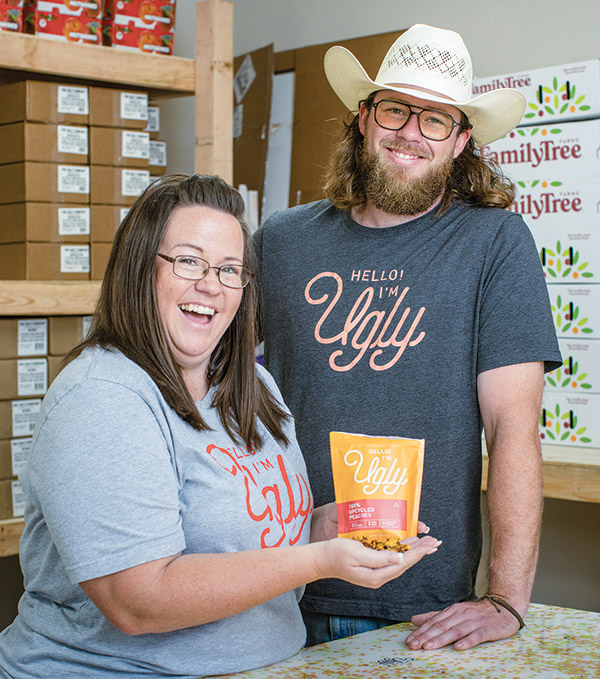
Witnessing waste
The snack company’s impetus stemmed from Moore’s personal experience. When the fourth-generation farmer was growing up in Kingsburg in the heart of stone fruit-growing country, he witnessed hundreds of thousands of tons of edible fruit go to waste.
As a boy, he assumed this was normal, but years later, it gnawed at him. After serving in the Army and returning to Kingsburg, he worked as a truck driver. One of his duties was hauling discarded fruit from farms to various disposal sites: landfills, empty fields, dairies for cow feed and compost yards.
With each load he dumped, he thought of the labor, fertilizer, water and other resources that had gone into growing that fruit, not to mention the money this was costing farmers living on a shoestring.
While some fruit rejected by fresh-fruit retailers can be donated to charities or sold to juice makers or discounted blemished-fruit markets, each of these entities can take only a limited amount of fresh fruit at one time, Moore explains. For example, food banks often lack enough refrigeration to take large loads. After using every viable outlet to save the fruit, farmers are still left with tons of leftovers.
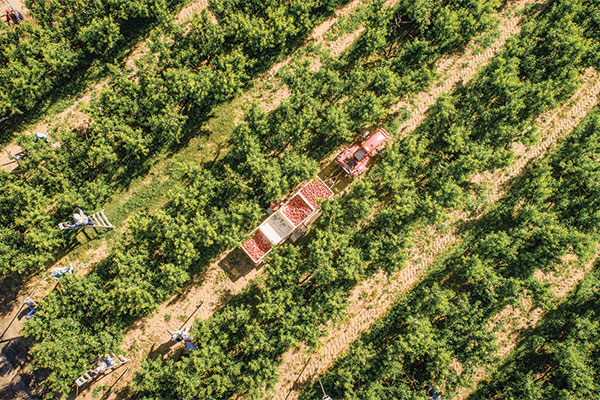
A turning point
In the fall of 2017, after reading about a widespread food shortage in Puerto Rico following Hurricane Maria, Moore had what he describes as a “lightbulb moment.”
“I’m sitting there and thinking, ‘Here people are starving and just today I dumped maybe 300,000 pounds of fruit. Why hasn’t somebody figured this out?’” Then it struck him that the “somebody” should be himself. “That really set in motion my conviction to work on a solution,” he says.
He sold his trucks and equipment and, for the next year, he put all his effort into researching ideas and sustainable business models.
“I never looked back,” he says.
Inspired by a childhood memory of his grandmother drying leftover fruit on the house’s roof to make treats for the kids, he took that idea and developed it.
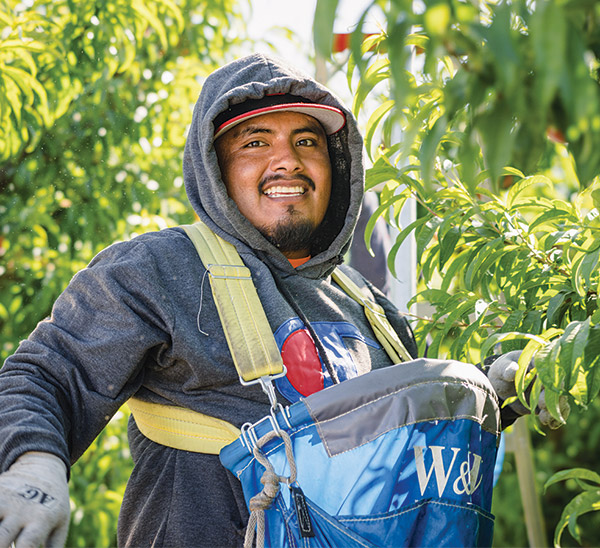
On Dec. 28, 2018, he launched The Ugly Co., making dried-fruit snacks with exclusively fruit that would otherwise be discarded. Under the “Hello! I’m Ugly” label, each 4-ounce package prevents 2.5 pounds of fruit from going to waste, he says. The apricots, peaches, cherries, nectarines, white nectarines and kiwifruit all come from farms near the Kingsburg headquarters.
“There were definitely a lot of people early on who said, ‘That’s the dumbest name for a company I’ve ever heard. That’s never going to work,’ but I wanted to communicate as clearly as possible that we were using ugly fruit.”
As it turns out, the quirky name attracts attention and prompts people to read the packaging. When they see there are no additives or preservatives—just fruit—and they’re saving that fruit from waste, they try it. After tasting it, they keep coming back. All the flavors sell well, Moore says, but peach is the most popular.
The Ugly Co. products are available via its website, some subscription boxes and some stores.
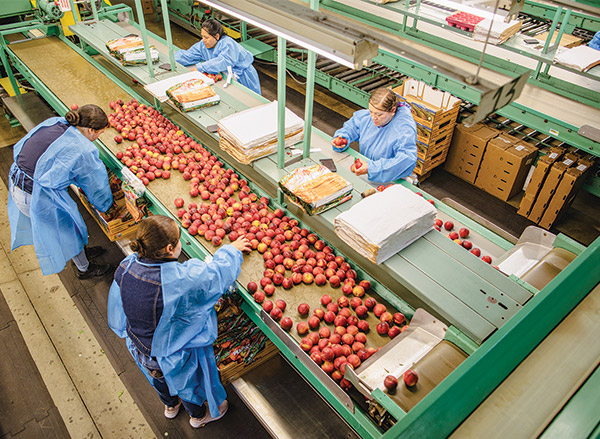
A growing company
The Ugly Co. now has several other employees, including a chief operations officer, two sales managers and a creative director, among others, most with backgrounds involving agriculture.
In 2021, the company processed about 1 million pounds of fruit. “Our goal this year is to do over 2 million,” Moore says. The company buys fruit from eight different packing sheds serving about 60 local farms—and the number keeps growing.
“In California, we grow just about every kind of fruit and vegetable. So, we have plans to add more and more fruits,” he says.
Farmer Jones has become such a fan of both the snacks and the mission that his company, Sun Valley Packing, recently partnered with The Ugly Co. to build a processing plant, where the snacks will be dried and packaged in-house for the first time.
“I think this product will go over big if we could get this to people all over the country,” Jones says.
Another believer jumping on board is David Avalos, who worked for packinghouses for about 20 years and witnessed millions of pounds of fruit get discarded every year. Some went to juice or processed-food companies, but most went to cow feed.
“But it gets to be so much the cows don’t want it anymore,” he says. “I hated seeing all that waste.”
So, he was excited to join The Ugly Co. staff in April. He’ll oversee the transition to the company’s in-house processing plant and then manage its operations.
Moore says this is just the beginning for The Ugly Co.
“Based on my calculations, within about a 15-mile radius of Kingsburg during harvest season, we throw out about a million to 2 million pounds of fruit a day, six days a week,” Moore says. “The goal of the company is to use every piece of that fruit for its intended purpose—to be consumed by a human being. I’m confident in my lifetime we can get there.”
Upcycled food is a
growing industry
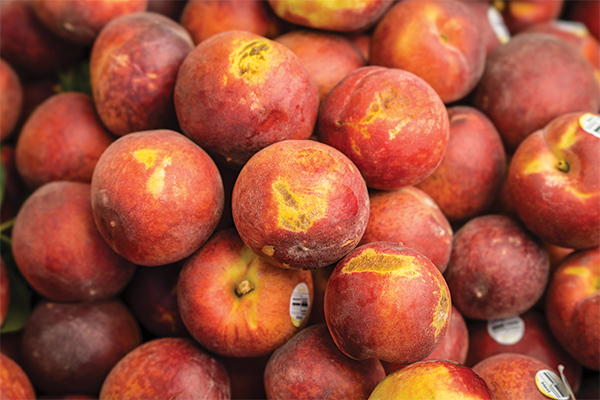
Companies worldwide are increasingly jumping on board to prevent food waste by finding ways to “upcycle” foods—creating new high-quality products out of surplus food.
Angie Crone, the head of programs for the Upcycled Food Association, says the membership organization is aware of hundreds of U.S. companies that actively upcycle and suspects the number is much larger. Among them is The Ugly Co. of Kingsburg, which was one of its first members when the association formed in 2019 to support and promote upcycling.
Since the association’s launch of its Upcycled Certified program in May 2021—the world’s first third-party certification program for upcycled food ingredients and products—it has certified more than 200 products and ingredients, which are projected to prevent more than 820 million pounds of food waste in the next year, Crone says.
“There is so much variety and innovation that we anticipate seeing Upcycle Certified products in every category in every aisle of the grocery store in the coming years,” Crone says.
“A study from Mattson (a food and beverage innovation company) shows 99% of consumers see food waste as a problem and that demand for upcycled products is strong and growing, with 80% of consumers saying they would seek them out.”
She also cites Future Markets Insights’ report showing products created from food waste are valued at $52.91 billion and are projected to reach $83.26 billion by 2032.

